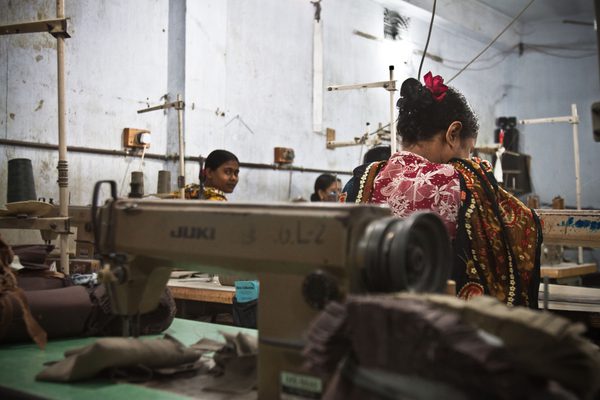Home Government Incentives Toward Responsible Business Conduct
22 March 2017

The ‘governance gap’- the gap between where law extends compared to where business activity goes - was a driving force behind the creation of the UN ‘Protect, Respect, Remedy’ Framework and Guiding Principles on Business and Human Rights (UN Guiding Principles). Six years on, the gap remains.
In a globalised marketplace, companies often operate in areas where host state regulation is lacking or where host governments may struggle to enforce their own laws.
Adopting new international laws is often a long and drawn out process, as demonstrated by the on-going discussions on a possible treaty on business and human rights. Several years into the process, just some of the core substantive issues are beginning to be addressed.
Shifting notions of sovereignty and well-established principles of corporate law play a role, as do concerns about impeding innovation and the job creation that can come from cracking open new areas of the economy.
Clear incentives set by home states can be crucial in promoting responsible business conduct.
The governance gap is also due to the accepted notion in international law that 'host states' (who host a company’s operations) carry the primary responsibility to regulate the activities of businesses operating in their territory. An overly rigid and formalistic application of this principle ignores reality - in a globalized marketplace, companies often operate in areas where host state regulation is lacking or where host governments may struggle to enforce their own laws. In these environments, clear incentives set by 'home states' (where companies are legally registered) can be crucial in promoting responsible business conduct.
IHRB’s ‘Nairobi Process’, which focuses on the extractive sector in East Africa, has produced a series of reports focused on the home state role in filling the governance gap. The report series focuses on the extractive sector, given its significant social and environmental impacts and is more likely to operate in countries with limited national regulation or enforcement on responsible business conduct.
Some of the newly emerging producer nations in East Africa, Kenya and Tanzania in particular, are actively revising their policy and legal framework for the extractive sector. The frameworks will take some time to put in place. This will be followed by the significant challenge of building capacity to be able to enforce them. In the meantime, extractive sector exploration and operations are underway. Impacts already experienced by communities and workers on the ground indicate that those changes cannot come too soon.
This report series looks at a range of different tools home states can use.
This series of reports seeks to highlight the range of tools that home states can use to incentivise responsible business conduct and discincentivise irresponsible conduct among extractive companies operating or potentially operating abroad. It builds on IHRB’s ‘State of Play’ report on Human Rights in the Political Economy of States, examining the role of states in advancing the protection of human rights in relation to business activities. The analysis focuses on eight Organisation of Economic Cooperation and Development (OECD) countries with significant extractive sector companies (Australia, Canada, France, Germany, the Netherlands, Norway, the United Kingdom and the United States), the European Union (EU) and five BRICS countries (Brazil, Russia, India, China, and South Africa).
The report series looks at a range of different tools home states can use, focusing on:
- Overview of the key international standards
- multi-stakeholder initiatives
- reporting requirements
- innovative new approaches
- the role of capital markets
Each report provides country-by-country comparisons and identifies trends.
The examples provided are meant to serve as prompt to home states with significant extractive companies operating abroad to take note and take action. The reports can also serve as models for other sectors that have drawn less attention but which may have increasingly significant human rights impacts when operating abroad.
The examples provided are meant to serve as prompt to home states with significant extractive companies operating abroad to take note and take action.
Equally as important, the examples discussed provide information to civil society and other stakeholders about additional avenues for promoting greater accountability among states and companies. The reports will hopefully stimulate further debate on the efficiency and effectiveness of such measures, as few have been formally evaluated – even some of the longer-standing multistakeholder initiatives in the sector. Governments and civil society should be asking how useful the tools in the toolbox are.




